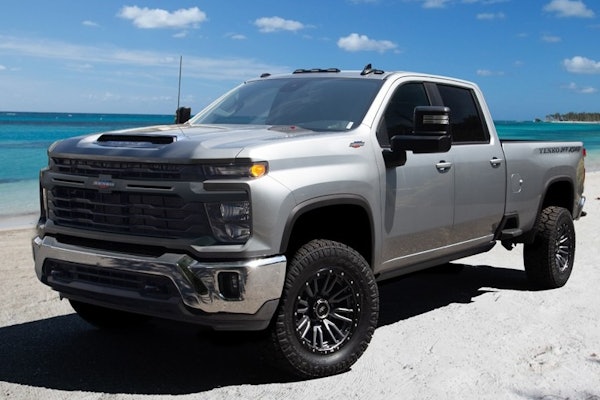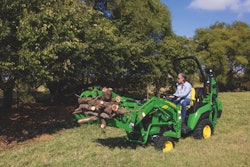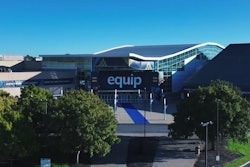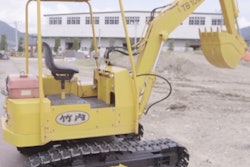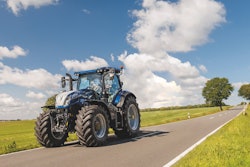Well-managed lawns can reduce carbon footprint
An independent study conducted for the Outdoor Power Equipment Institute (OPEI) shows that managed turfgrass can capture and store four times more carbon from the air than is produced by the average lawnmower.
The report, “Technical Assessment of the Carbon Sequestration Potential of Managed Turfgrass in the United States” by Dr. Ranajit Sahu, an environmental and energy expert and university instructor, relied on several peer-reviewed studies that measured carbon sequestration in managed and unmanaged turfgrass.
Kris Kaiser, vice president, public affairs, OPEI, says the report came about partly due to the climate change debate ongoing in Congress, as well as OPEI’s concerns about the challenges of turf and turf-maintenance products. They wanted to know if there were any benefits of turfgrass, and if so, would those benefits outweigh the emissions component.
OPEI and Sahu found the “average, managed lawn” absorbs four to seven times the carbon emitted by a lawnmower. Sahu’s report shows the average riding mower emits 156.07 pounds of carbon per acre per year, and the average walk-behind mower emits 208.09 pounds.
Once carbon is captured by grass, it is deposited in the root system. Kaiser says that while forests are very good at sequestering carbon, storing it in the grasses’ root system is even better because as trees are cut down, the carbon can be released.
Some industry professionals have been hesitant regarding turf use due to issues ranging from droughts to environmental building certifications. Kaiser acknowledges the water debate, but says in portions of the country where water is not an issue turf can positively impact the environment.
Other benefits of turf include reducing the heat-island effect, benefiting the cooling effect and capturing run-off. Kaiser also says there are a variety of drought-resistant grasses that can be used as substitutes in areas where water use is mandated.
Sahu’s full report can be read at www.opei.org/carbonreport.
~Jennifer Mitchell
WaterSense new home specification draft available online
WaterSense, a program sponsored by the EPA, has accepted comments on its Draft Water-Efficient Single-Family New Home Specification. The draft includes specifications for indoor plumbing fixtures as well as landscape design and irrigation systems. The EPA expects as many as 14 million new single-family homes will be needed in the next seven or eight years, and the specifications are available for builders and landscapers to have these new homes labeled with a WaterSense certification.
Some of the outdoor regulation components include choosing between two options for landscape design – one that limits the amount of turf to 40 percent of the landscaped area and one that gives the landscaper an opportunity to design the landscape with a water budget. There are also criteria for mulching, pools and spas and a stipulation that no ornamental water features will be allowed to receive a WaterSense label.
Along with the IA, the International Professional Pond Contractors Association (IPPCA) raised concerns over the ornamental water features stipulation.
On July 5, the IPPCA released its proposed language for section 4.1.4 “Ornamental Water Features” of the draft specification. The new language reads “Ornamental Water Features shall meet one or more of the following specifications: 1) Incorporate a closed re-circulation system; 2) Utilize a naturally occurring water source; 3) Sustain aquatic life; 4) Support wildlife; 5) Utilize reclaimed water.”
Industry professionals who wish to view the draft in PDF form can visit www.epa.gov/watersense/specs/homes.htm.
~Jennifer Mitchell
CLIPPINGS
DIG develops water restrictor device for SNWA
DIG Corporation was one of six manufacturers asked by the Southern Nevada Water Authority to develop a water restrictor device which will serve as an override for irrigation controllers with existing water schedules that must abide by Nevada water restrictions. Prototypes were completed in May and are scheduled to be installed in September. After the one-year test, the SNWA will choose one device to manufacture for distribution.
PLANET announces 33rd annual Student Career Days
PLANET’s 33rd annual Student Career Days will be held at California State Polytechnic University in Pomona, California, March 26-29. SCD gives college students enrolled in horticulture programs an opportunity to compete in events like arboriculture, paver installation, plant identification and exterior/interior design. SCD also features a career fair for students to network with green industry businesses. For more information, visit www.StudentCareerDays.org.
Scotts Field Day highlights seed variety research
Scotts Professional Seed has released research findings on developing seed varieties requiring less water, mowing and nitrogen use at the 2008 Field Day on June 19. As the industry is forced to budget water and other resources, information concerning seed varieties is becoming increasingly important. Scotts also related data from heat tolerance bluegrass trials and studies comparing water usage and drought tolerance. To obtain a CD of the latest research material, contact Wayne Horman at [email protected].
Grasshopper receives ‘Best in Business’ award
The Grasshopper Company/Moridge Manufacturing was presented a 2008 Best in Business award June 19 as part of The Wichita (Kansas) Business Journal’s annual selection of the region’s best-managed businesses. Grasshopper was chosen one of five overall winners from a pool of over 250 nominations.
Grassroots legislative action tool launched
The Irrigation Association along with the American Nursery and Landscape Association launched an online tool to support grassroots legislative outreach. The Legislative Action Center allows users to register to vote, monitor industry issues, e-mail elected officials to pass important legislation and use ZIP codes to find government officials in their area. To use the new tool, visit www.capwiz.com/irrigation.
Terra Nova receives American Begonia Society award
The American Begonia Society awarded Terra Nova Nurseries a blue ribbon for its Begonia ‘Metallic Mist’ in the “New Introduction from a Commercial Grower” category where it earned 96 out of 100 points. ‘Metallic Mist’ is a hybrid of two Chinese Begonia species and has heavily silvered, maple-like leaves. It grows in USDA Hardiness Zones 7B to 9.
Talkback
We want to hear from you! What are the 10 biggest mistakes you’ve made as a landscaper? E-mail your top 10 blunders to managing editor Christina Jesson at [email protected].
